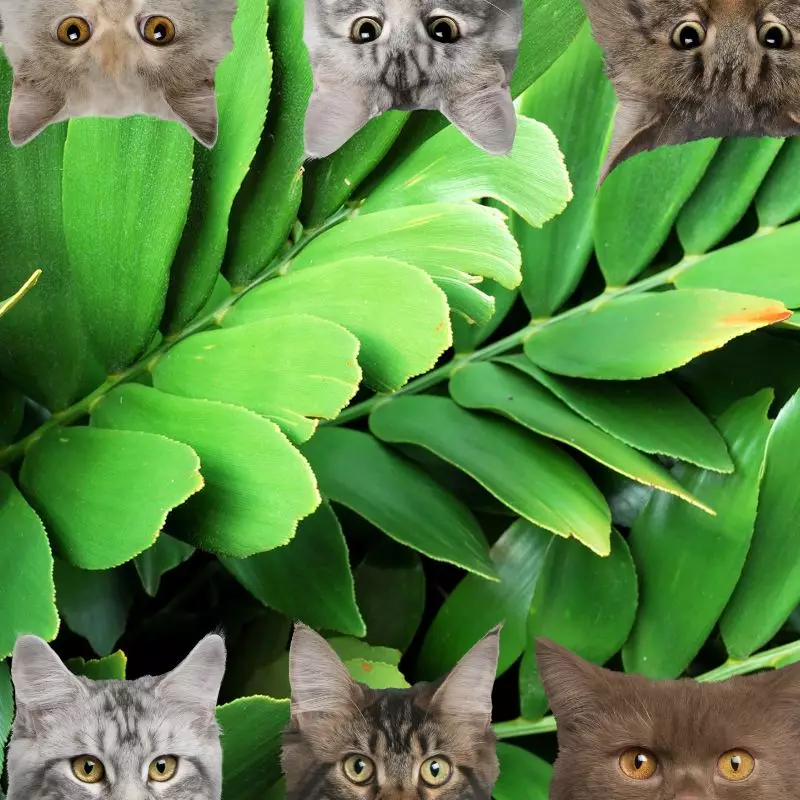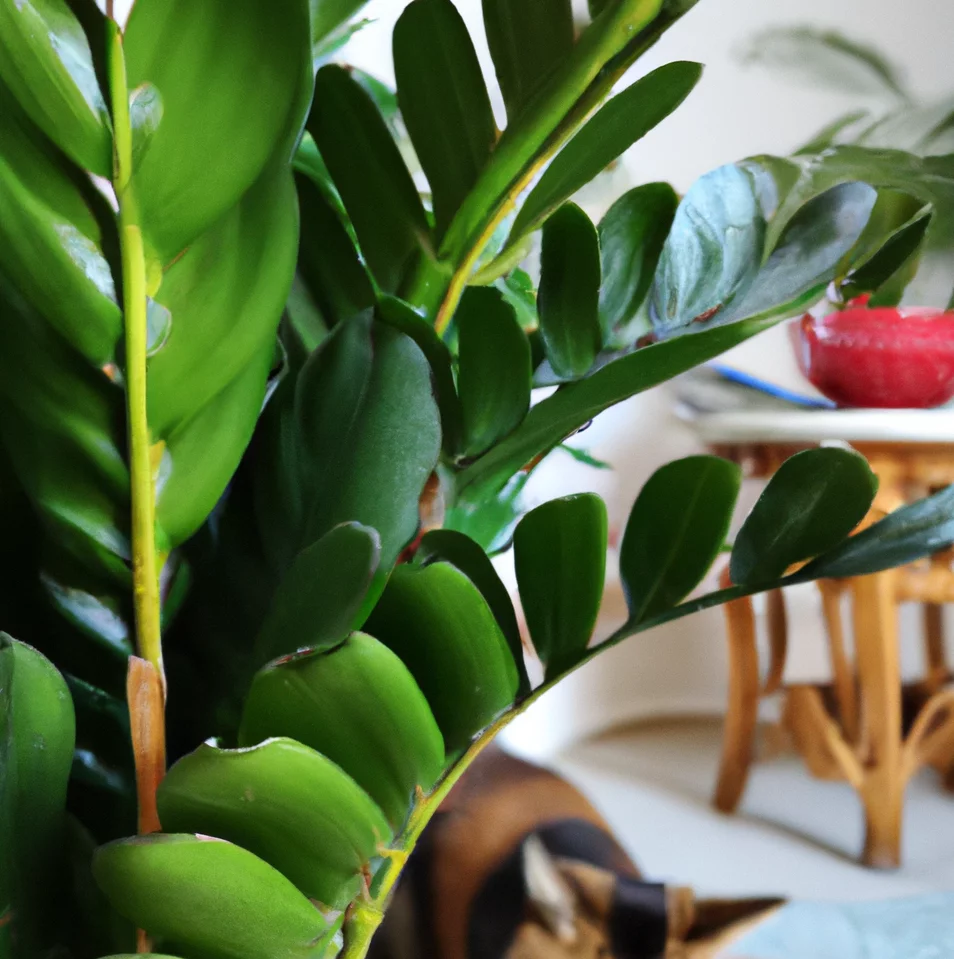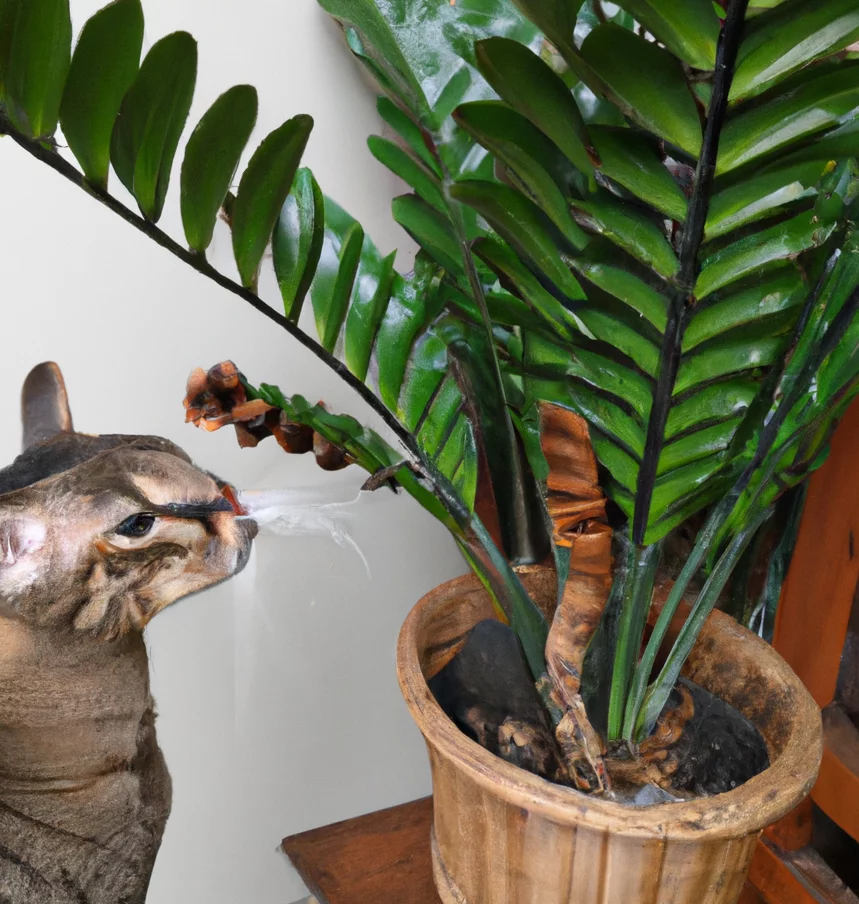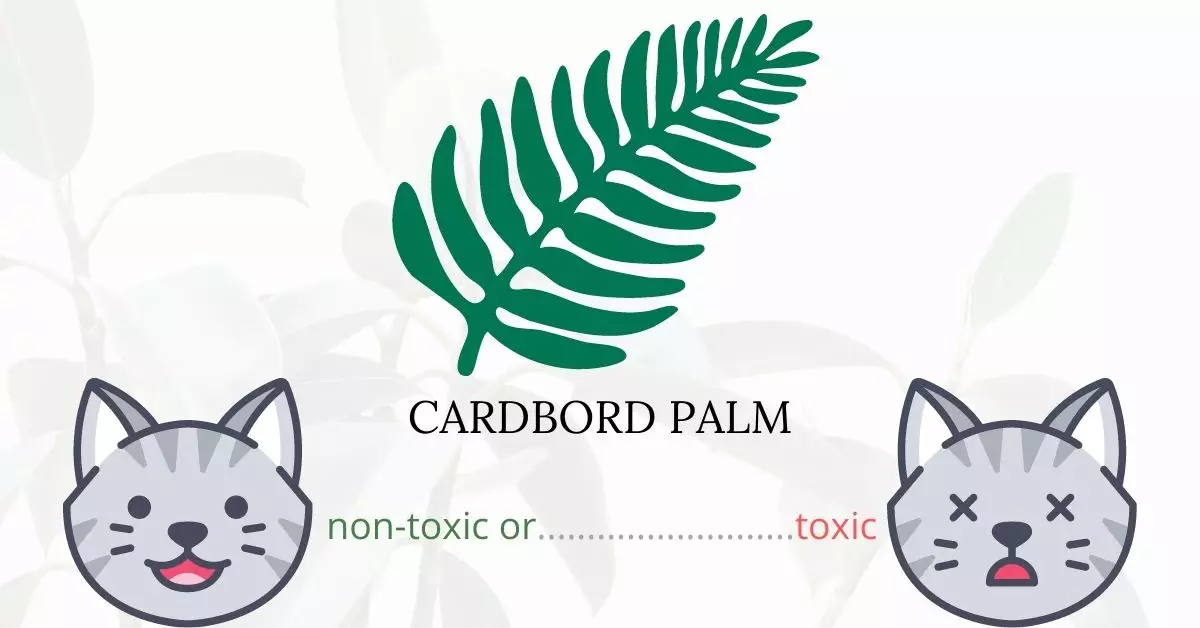Yes, Cardboard Palms, also commonly known as cycads, are toxic to cats. These popular landscaping plants contain cycasin, a carcinogenic toxin that can cause mutation of genetic material. If a cat ingests any part of a Cardboard Palm, symptoms may include abdominal pain, vomiting, dark stools, diarrhea, and jaundice, indicative of cardboard palm poisoning.
This article has been written in collaboration with a team of experienced DVMs (doctors of veterinary medicine). Their expert contributions, combined with our thorough research from high-authority websites such as ASPCA and PetMD, ensure that we provide accurate and up-to-date information on the potential risks associated with various plants and their effects on cats.
Clinical Signs of Cardboard Palm or Cycad Poisoning in Cats

Cardboard palm poisoning can be a severe and potentially fatal condition in cats. It’s crucial to be vigilant and take immediate action if you observe your cat in contact with, smelling, or consuming parts of this plant. Here’s a breakdown of the clinical signs associated with Cardboard Palm poisoning in cats and the underlying causes:
- Vomiting with blood: This happens because cycasin, the toxin found in cardboard palms, irritates the stomach lining, leading to inflammation and potential bleeding.
- Diarrhea: The consumption of toxic substances often leads to a rapid and aggressive bowel response, as the body attempts to expel the harmful compounds.
- Dark feces: The presence of blood in the intestines can lead to the production of darker, tarry stools.
- Excessive thirst: The toxins can affect the kidneys, causing increased thirst as the body tries to flush out the toxins.
- Jaundice: This is a sign of liver damage or dysfunction. Cycasin can impact the liver’s function, leading to a buildup of bilirubin in the bloodstream, which results in the yellowing of the skin and eyes.
- Bruising: Due to potential liver damage, the body’s ability to produce clotting factors can be compromised, leading to increased susceptibility to bruising.
- Lethargy: As the toxins affect various body systems, they can lead to a general feeling of malaise, resulting in decreased energy or activity levels in the affected cat.
- Abdominal pain: The irritation of the stomach and intestines can lead to notable discomfort or pain in the abdominal region.
If you suspect that your cat has ingested or been in contact with a Cardboard Palm, it’s essential to seek veterinary care immediately, even if these symptoms are yet to manifest.
First Aid and Treatment of Cardboard Palm or Cycad Poisoning in Cats

In most cases of cardboard palm poisoning, cats are taken to the hospital overnight for up to a few days to have their status properly monitored. Your cat’s needs will be met by the veterinarian’s care. Vomit induction, IV hydration therapy, and activated charcoal are all possible treatments. Your cat may need a plasma transfusion if he or she is suffering from a serious illness. In cases of liver failure, the veterinarian may prescribe drugs to help manage and improve liver function.
Recovery from Cardboard Palm or Cycad Poisoning in Cats

The speed with which the poisoning was discovered and treated can affect your cat’s recovery. Once you get home, make sure your cat has a quiet space to recuperate and keep him or her warm and comfortable. Be sure to stick with the post-treatment care as advised by the veterinarian. Dietary modifications might be needed by your cat particularly if he or she is suffering from liver failure.
Prevention of Cardboard Palm or Cycad Poisoning in Cats
Avoid bringing in and growing cardboard palms or cycads within the vicinity of your home. If there are cardboard palms growing in your neghborhood, ensure that your cat will stir away from going into that location. To restrict your cat from wandering away from home, keep him or her occupied indoors.
If you love plants but have cats at home, check out these lists:





